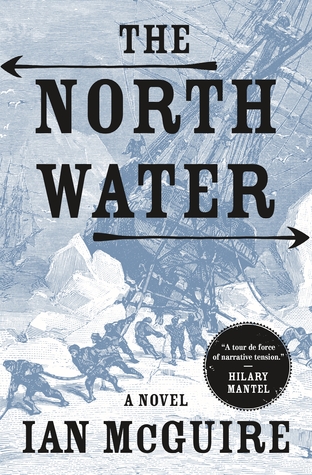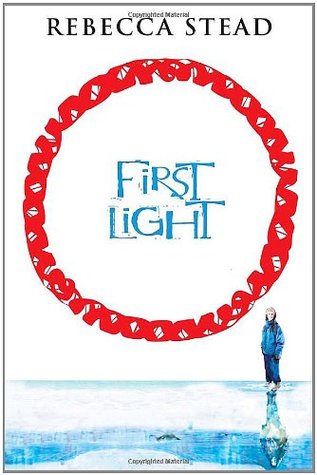Six Books with Cold, Wintry Settings to Read by the Fire
- The Bossy Bookworm
- Feb 12, 2021
- 5 min read
01 The Child Finder by Rene Denfeld
This book is dark and beautiful, with such expansive descriptions of the mountains, the closed-in forests, and the traps and dangers of the winter and the wild that I could almost feel the cold.
The elements that feel potentially familiar or could have felt overused from use in other stories (a tough, closed-off investigator, broken by her past; a strong, kind man’s singular, devoted but unrequited love for her; the general outline of the disturbing situation at the heart of the book’s main case) are cushioned by Denfeld’s skillful setting of the scene and lovely shaping of the story. I found this to be a fast and engrossing read.

There's a second book in this Naomi Cottle series, The Butterfly Girl, which I haven't yet read, and Denfeld also wrote The Enchanted, which I thought was haunting and arresting.
If you like unlikely heroines and missing-person plots, you might also like Before She Disappeared, which I thought was a fantastic book.
02 The North Water by Ian McGuire
“He finds the lying comes easy enough, of course. Words are just noises in a certain order, and he can use them any way he wishes. Pigs grunt, ducks quack, and men tell lies: that is how it generally goes.”
In 1859, a whaling ship sets sail for the Arctic Circle. It's full of rough characters and men eager to leave their pasts behind, including Patrick Sumner, a doctor who's desperate enough to take the job of ship's surgeon on the boat.
But the ship's fate proves more disastrous than Sumner could have imagined when a cabin boy is brutally killed and the culprit turns out to be a cruel, ruthless murderer on board.

This was probably 3.75 stars for me. The North Waters is a dark, disturbing exploration of failed second chances, revenge, and destructive base instincts. I found it haunting.
McGuire is also the author of Incredible Bodies and The Abstainer.
03 First Light by Rebecca Stead
Peter is a teenager from New York City thrilled to be accompanying his scientist parents on an expedition to Greenland. Thea and her people, long accused of witchcraft and magic, live within the Greenland ice, and Thea has never seen the sun. The two intersect within Stead's unique story as Peter tries to discover more about Thea's people's threat of extinction.
The pacing of First Light is a little slow at first, and I would have liked to see more science-based details about global warming throughout. The standouts for me in First Light were the Greenland setting, the alternate world, the bitter cold, and the sentimentalism and mystery that were so vividly imagined. I was hooked.

This was the author's first young adult book. Stead is also the author of the outstanding Goodbye Stranger, as well as other great books: When You Reach Me, Liar & Spy, and The List of Things That Will Not Change.
04 Disappearing Earth by Julia Phillips
Julia Phillips's interconnected stories follow in chapters that take place each month for a year after the disappearance of two girls on the edge of Russia. The rural Siberian settings are exquisitely wrought, with stark, rugged, lush landscapes serving as the backdrop for a mystery that shakes a small community.
Disappearing Earth is a story that is as much about the varied cast of characters, the closed-off, remote community, and the vivid sense of place and cold setting that Phillips imagines as it is about the mystery itself. It isn't a police procedural; this is a starkly beautiful book that happens to have a mystery at its heart.

This is Phillips's first book, and the author builds the story's pace steadily toward a crescendo. The ending doesn't necessarily provide all the answers, but Phillips provides enough pieces of the puzzle to create closure. I still think about Disappearing Earth from time to time, long after reading it.
I also listed Disappearing Earth in the Greedy Reading List The Six Best Mysteries I Read Last Year.
05 The Endurance: Shackleton's Legendary Antarctic Expedition by Caroline Alexander
In this beautiful nonfiction book, which includes striking black-and-white photographs by Frank Hurley, Alexander traces explorer Ernest Shackleton's 1914 voyage to the South Atlantic as he and his crew of twenty-seven men attempted to be the first to cross the Antarctic continent on foot.
In what is now a famously ill-fated turn of events, the ship Endurance became trapped in the ice and crushed, leaving the crew marooned on the ice in a brutal fight for survival that lasted twenty months.

The very existence of Hurley's images is incredible; the glass plate negatives lasted through months on ice floes, a week's travel in an open boat, and months buried in the snow. Eventually Hurley had to leave behind his professional camera and equipment, capturing the images here with "a pocket camera and three rolls of Kodak film." The book was published in conjunction with the American Museum of Natural History's extensive exhibition on Shackleton's exploration, which was one of the last great expeditions in the Age of Exploration.
06 To the Bright Edge of the World by Eowyn Ivey
“There is a mythical element to our childhood, it seems, that stays with us always. When we are young, we consume the world in great gulps, and it consumes us, and everything is mysterious and alive and fills us with desire and wonder, fear, and guilt. With the passing of the years, however, those memories become distant and malleable, and we shape them into the stories of who we are. We are brave, or we are cowardly. We are loving, or we are cruel.”
To the Bright Edge of the World is a story of discovery, adventure, tedious slogging, danger, and self-revelation in the wilds of nineteenth century Alaska, interspersed with scenes from a home life on a military base in Washington Territory--and a surprisingly meaningful modern-day correspondence linked to it all.

Ivey's fantastical elements are inspired by Native American folklore and stories, and they work well here, causing the characters to broaden their views of the great unknown world, but without overshadowing the detailed, vibrant descriptions grounded in exploration and nature.
Ivey also wrote The Snow Child, a book listed on the Greedy Reading List Six Magical Fairy Tales Grown-Ups Will Love.
What are some of your favorite cold-setting books?
Other books I've loved that could have appeared on this list include Eowyn Ivey's The Snow Child, mentioned above, and Katherine Arden's Winternight trilogy, both of which were listed on the Greedy Reading List Six Magical Fairy Tales Grown-Ups Will Love, and Jon Krakauer's Into the Wild and Into Thin Air. The books on the Greedy Reading List Six Captivating Nordic Stories would also fit nicely here.
Promising books on my to-read list that would also fit this criteria: Wintering: The Power of Rest and Retreat in Difficult Times by Katherine May, The Arctic Fear by Greer Macallister, Woman in the Polar Night by Christiane Ritter, The Captive by Fiona King Foster, Moon of the Crusted Snow by Waubgeshig Rice, Winter World, the first in a series by A.G. Riddle, and Welcome to the Goddamn Ice Cube: Chasing Fear and Finding Home in the Great White North by Blair Braverman. Have you read any of these? Any thoughts?
What other books would you include on this list? Do you like reading cold-setting books in the winter, or does reading about frigid temperatures while you're living in frigid temperatures feel too close to reality for comfort?


















